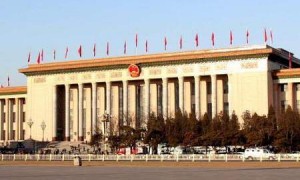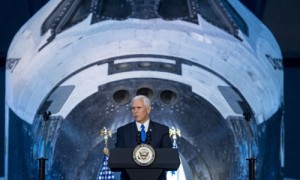The world's steel sector is struggling to survive. And global leaders are trying to find a way out. Government officials gathered Monday in Brussels to discuss ways to revive the sector and lessen trade friction.
Shen says that the Chinese government is contributing to the solution.
"Although China is not a member of the OECD, the Chinese government is taking part in the seminar with a responsible, open, and cooperative attitude, as a major consumer, producer, and exporter for the steel industry," Shen said.
Assistant Commerce Minister Zhang Ji attended the symposium in Brussels, and the participants reached a consensus that soft demand and the economic downturn are the root causes for excess steel capacity.
Shen says the Chinese government has taken a series of measures to improve the sector and manage demand.
"Chinese steel production is aimed mainly at domestic demand. We don't adopt any subsidized policy to spur steel exports. Quite the contrary. The Chinese government levies export duties on certain exports. Meanwhile, China imports a large number of steel products, providing a vast market for global steel production. We are here to call on global players to adopt vigorous policies from both the supply and demand sides to tackle the overcapacity issue," Shen said.
Shen said that the Chinese government supports free and open rules for global trade and opposes protectionism.
Analysts say increased imports have pressured certain steel makers, but countries should also see the benefits of international trade on economic growth. The analysts say that global trade isn't the culprit. Instead, what is needed is dialogue and coordination.







